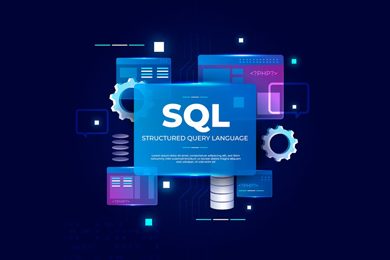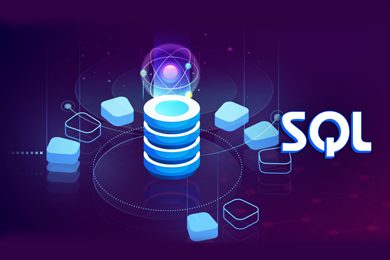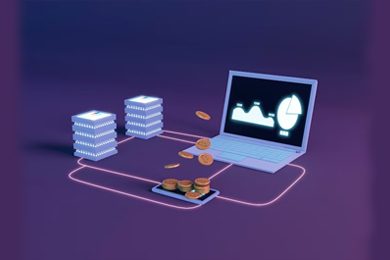This plan includes
- Limited free courses access
- Play & Pause Course Videos
- Video Recorded Lectures
- Learn on Mobile/PC/Tablet
- Quizzes and Real Projects
- Lifetime Course Certificate
- Email & Chat Support
What you'll learn?
- Basic T-SQL - SELECT , WHERE , GROUP BY ,HAVING, BETWEEN , LIKE etc
- Joins - Inner Left Right Full & Cross
- Schema
- SubQueries
- DataTypes
- Implicit and Explicit Conversion
- CASE Statements
- Joining more than two tables
- InBuilt Functions
Course Overview
This course starts from the beginning , no prior knowledge is needed and it is step By step Practical Training on Programming Transact SQL Query from basics on Microsoft SQL Server Database Engine
This course is must for all the Aspirants who want to become Microsoft SQL Server Database Developers , Microsoft Database Administrator, Web Developers such as .NET Developers,Database ANALYSTS , Report Developers such as SSRS or ETL Developers such as SSIS etc
Following are the course contents which are covered in this course T-SQL Online SQL Server Video Step By Step Training
Introduction
What is a Relational Database
What is Relational Database Management System
SSMS and SQL Server Database Engine
SQL Server and SSMS Installation
Basic T-SQL
Creating DB Tables & Inserting Data into the tables
Primary Key and Foreign Key
Basic Select Commands
Aggregate Functions with SELECT Command
Group By Clause using Single and Multiple Columns
Difference Between WHERE and HAVING Clause
Syntax of SELECT Command
T-SQL Joins to query SQL Server
Inner Join
T-SQL with Inner Join and Group By Together
Left Join
Right Join
Full Join
Cross Join
Self-Join
Union Operation
Union All Operation
Intersect Operation
Except Operation
Working with Schema
What is Schema and its Importance
Schema Creation & Transfer and Viewing the objects inside Schema using T-SQL
Subqueries
Getting Started with first Subquery Example
Common Interview Question on Subquery
Joins Group by Derived table Subquery combined TSQL
Subquery as a Column
Subquery using NOT Exists
ALL ANY SOME Keywords in Subquery
Correlated Subquery
Not Exists Keyword Scenario of Correlated Subquery to speed up query performance
Datatypes
Datatype Conversion
Implicit & Explicit Conversion (Type Casting)
DML Operations and Constraints
Many Different Options while performing insert update and delete operations
Primary Key, Foreign Key, Unique, Not NULL, Default, Check Constraints
Joining more than two tables
Joining three tables
Joining four Tables
One more example in joining four tables
Working with CASE Statements and Inbuilt Functions
Performing Select and Update operation using case statement
WHILE Loop
Inbuilt Functions - EOMONTH, IIF, CHOOSE, DatePart, String Functions etc.
Pre-requisites
- The course starts right from the scratch which also tells about software installation. One can go through free preview videos for better understanding
Target Audience
- Beginner Developers, DBAs or Data Analysts curious about querying on Microsoft SQL Server Database Engine
Curriculum 46 Lectures 07:03:29
Section 1 : Introduction
- Lecture 2 :
- What is a Relational Database
- Lecture 3 :
- What is Relational Database Mananagement System
- Lecture 4 :
- SSMS and SQL Server Database Engine
- Lecture 5 :
- SQL Server and SSMS Installation
Section 2 : Basic T-SQL
- Lecture 1 :
- Creating DB Tables & Inserting Data into the tables
- Lecture 2 :
- Primary Key and Foreign Key
- Lecture 3 :
- Demonstration Scripts
- Lecture 4 :
- Basic Select Commands
- Lecture 5 :
- Aggregate Functions with SELECT Command
- Lecture 6 :
- Group By Clause using Single and Multiple Columns
- Lecture 7 :
- Difference Between WHERE and HAVING Clause
- Lecture 8 :
- Practice Activity
- Lecture 9 :
- Syntax of SELECT Command
Section 3 : T-SQL Joins to query SQL Server
- Lecture 1 :
- Inner Join
- Lecture 2 :
- T-SQL with Inner Join and Group By Together
- Lecture 3 :
- Practice Activity
- Lecture 4 :
- Demonstration Scripts
- Lecture 5 :
- Left Right Full Cross Joins
- Lecture 6 :
- Self Join
- Lecture 7 :
- Union UnionAll Intersect Except Operations
Section 4 : Working with Schema
- Lecture 1 :
- Schema Creation & Transfer and Viewing the objects inside Schema using T-SQL
- Lecture 2 :
- What is Schema and its Importance
Section 5 : SubQueries
- Lecture 1 :
- Demonstration Scripts
- Lecture 2 :
- Getting Started with first SubQuery Example
- Lecture 3 :
- Common Interview Question on SubQuery
- Lecture 4 :
- Joins Group by Derived table Subquery combined TSQL
- Lecture 5 :
- SubQuery as a Column
- Lecture 6 :
- SubQuery using NOT IN
- Lecture 7 :
- ALL ANY SOME Keywords in SubQuery
- Lecture 8 :
- Correlated SubQuery
- Lecture 9 :
- Not Exists Keyword Scenario of Correlated SubQuery to speed up query performance
Section 6 : DataTypes
- Lecture 1 :
- Demonstration Scripts
- Lecture 2 :
- Datatypes
- Lecture 3 :
- Datatype Conversion Implicit & Explicit -Type Casting
Section 7 : DML Operations and Contraints
- Lecture 1 :
- Demonstration Scripts
- Lecture 2 :
- Many Different Options while performing insert update and delete operations
- Lecture 3 :
- Primary Key, Foreign Key, Unique, Not NULL, Default, Check Constraints
Section 8 : Joining more than two tables
- Lecture 1 :
- Demonstration Scripts
- Lecture 2 :
- Joining three tables
- Lecture 3 :
- Joining four Tables
- Lecture 4 :
- One more examples in joining four tables
Section 9 : Working with CASE Statements and Inbuilt Functions
- Lecture 1 :
- Demonstration Scripts
- Lecture 2 :
- Performing Select and Update operation using case statement
- Lecture 3 :
- Explaining WHILE Loop in T-SQL
- Lecture 4 :
- InBuilt Functions - EOMONTH,IIF, CHOOSE,DatePart,String Functions etc
Our learners work at
Frequently Asked Questions
How do i access the course after purchase?
It's simple. When you sign up, you'll immediately have unlimited viewing of thousands of expert courses, paths to guide your learning, tools to measure your skills and hands-on resources like exercise files. There’s no limit on what you can learn and you can cancel at any time.Are these video based online self-learning courses?
Yes. All of the courses comes with online video based lectures created by certified instructors. Instructors have crafted these courses with a blend of high quality interactive videos, lectures, quizzes & real world projects to give you an indepth knowledge about the topic.Can i play & pause the course as per my convenience?
Yes absolutely & thats one of the advantage of self-paced courses. You can anytime pause or resume the course & come back & forth from one lecture to another lecture, play the videos mulitple times & so on.How do i contact the instructor for any doubts or questions?
Most of these courses have general questions & answers already covered within the course lectures. However, if you need any further help from the instructor, you can use the inbuilt Chat with Instructor option to send a message to an instructor & they will reply you within 24 hours. You can ask as many questions as you want.Do i need a pc to access the course or can i do it on mobile & tablet as well?
Brilliant question? Isn't it? You can access the courses on any device like PC, Mobile, Tablet & even on a smart tv. For mobile & a tablet you can download the Learnfly android or an iOS app. If mobile app is not available in your country, you can access the course directly by visting our website, its fully mobile friendly.Do i get any certificate for the courses?
Yes. Once you complete any course on our platform along with provided assessments by the instructor, you will be eligble to get certificate of course completion.
For how long can i access my course on the platform?
You require an active subscription to access courses on our platform. If your subscription is active, you can access any course on our platform with no restrictions.Is there any free trial?
Currently, we do not offer any free trial.Can i cancel anytime?
Yes, you can cancel your subscription at any time. Your subscription will auto-renew until you cancel, but why would you want to?
Instructor

171659 Course Views
2 Courses



 Tech & IT
Tech & IT
 Business
Business
 Coding & Developer
Coding & Developer
 Finance & Accounting
Finance & Accounting
 Academics
Academics
 Office Applications
Office Applications
 Art & Design
Art & Design
 Marketing
Marketing
 Health & Wellness
Health & Wellness
 Sounds & Music
Sounds & Music
 Lifestyle
Lifestyle
 Photography
Photography
















